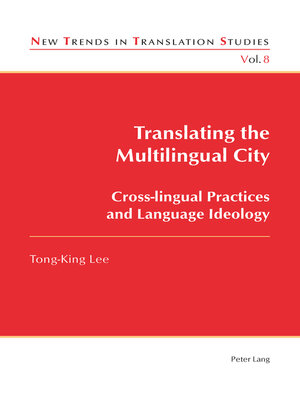Translating the Multilingual City
ebook ∣ Cross-lingual Practices and Language Ideology · New Trends In Translation Studies
By Jorge Díaz Cintas

Sign up to save your library
With an OverDrive account, you can save your favorite libraries for at-a-glance information about availability. Find out more about OverDrive accounts.
Find this title in Libby, the library reading app by OverDrive.



Search for a digital library with this title
Title found at these libraries:
| Library Name | Distance |
|---|---|
| Loading... |
Translation is a textual and discursive practice embedded in competing cultural identities and language ideologies; it is a site through which we can observe the operations and implications of language power. In this regard, multilingual societies provide fertile ground for the exploration of translation practice from the perspective of sociolinguistic tension.
This book examines the relationship between translation-mediated multi-literate practice and language ideology in multilingual Singapore. It problematises literary translation in light of the power relation between the official languages in the city-state, with special emphasis on English and Chinese. Based on published translations and multilingual anthologies, it investigates the implications of such power relations for intercultural communication through translation. The book also discusses how the translational problems that accrue from language ideology may contribute to a nuanced understanding of cross-lingual practice and to the realisation of intercultural knowledge in multilingual Singapore.
This book examines the relationship between translation-mediated multi-literate practice and language ideology in multilingual Singapore. It problematises literary translation in light of the power relation between the official languages in the city-state, with special emphasis on English and Chinese. Based on published translations and multilingual anthologies, it investigates the implications of such power relations for intercultural communication through translation. The book also discusses how the translational problems that accrue from language ideology may contribute to a nuanced understanding of cross-lingual practice and to the realisation of intercultural knowledge in multilingual Singapore.







